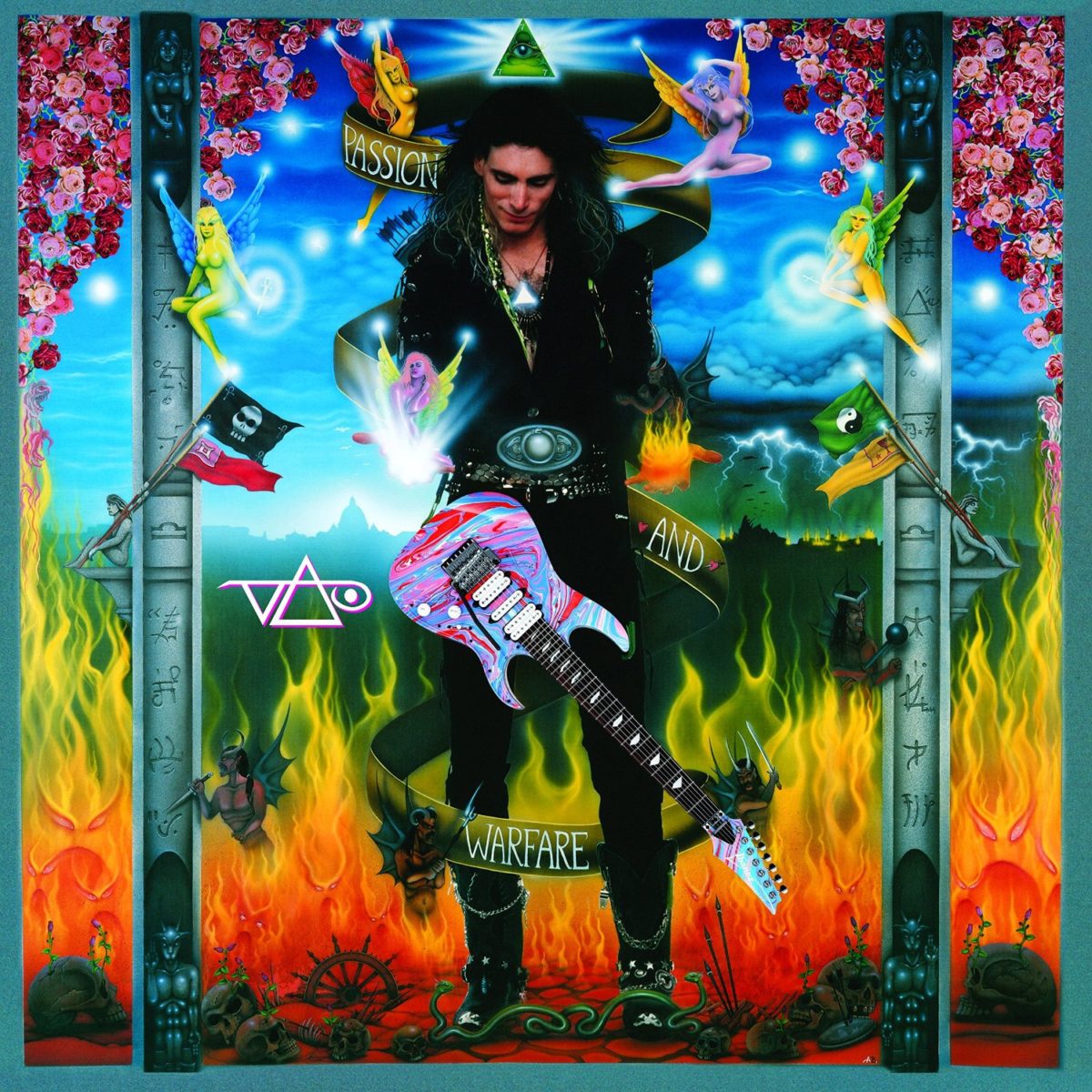

In the years between his first two records, Vai was a prolific studio and live musician, performing with artists like David Lee Roth and Alcatrazz. If one listens to the synclavier music Zappa released in his final years, she’ll hear right away that Flex-Able is a cousin to the Zappa catalogue. The production quality of Flex-Able is markedly diminished from what Vai would go on to achieve, and its sonic and compositional eccentricities feel like carryovers from Vai’s time playing guitar for his mentor Frank Zappa. The former, a quirky but unassuming thing, does house some Vai essentials (“Salamanders in the Sun” and “The Attitude Song”), but on the whole it does pale in comparison to its successor. Vai is not wrong about the six-year leap between Flex-Able and Passion and Warfare. “What Modern Warfare offers, per Vai’s account, is the missing link between these two discs, “a sort of Cro-Magnon Vai.” Vai’s rationale for this double LP release is understandable in the liner notes for this anniversary edition, he writes, “The music on ‘Flex-Able’ is so vastly different from ‘Passion And Warfare’, one could wonder if the same guy actually made both records. Rather than releasing a mildly gussied-up version of Passion and Warfare with a couple of bonus tracks (there are four here), Vai bundles it up with a collection of unreleased tunes from the era between this album and its predecessor, Flex-Able (1984). Admittedly, doing nothing more than remastering the original Passion and Warfare tunes is par for the course in the world of anniversary editions, but Vai does something that those editions rarely do: offer a re-framing of his breakthrough LP. For this reason, it might at first seem pointless for Vai and label Sony Legacy to release a 25th anniversary edition of Passion and Warfare: over that time (actually 26 years the album was released in 1990), the music hasn’t lost its staying power, nor its definitive status as the Steve Vai record.įor Passion and Warfare‘s quarter-centennial, Vai has opted not to release the perfunctory anniversary edition. (Vai did bring back the latter’s distinct guitar tones on “Sunshine Electric Raindrops”, the closing number on his 2012 LP The Story of Light.) A good half of Passion and Warfare‘s songs have since become Vai classics, if not calling cards (“For the Love of God,” “The Animal”). The chicken-pickin’, Van Halen-esque riff of “The Audience is Listening” and the ’80s radio rock of “I Would Love To” clearly place this album in the era of bright spandex and grandiose, hairspray-coated locks. In 2016, Steve Vai‘s Passion and Warfare remains one of the most lasting documents of the guitar virtuoso genre, even as some of its textures have become somewhat dated.


 0 kommentar(er)
0 kommentar(er)
